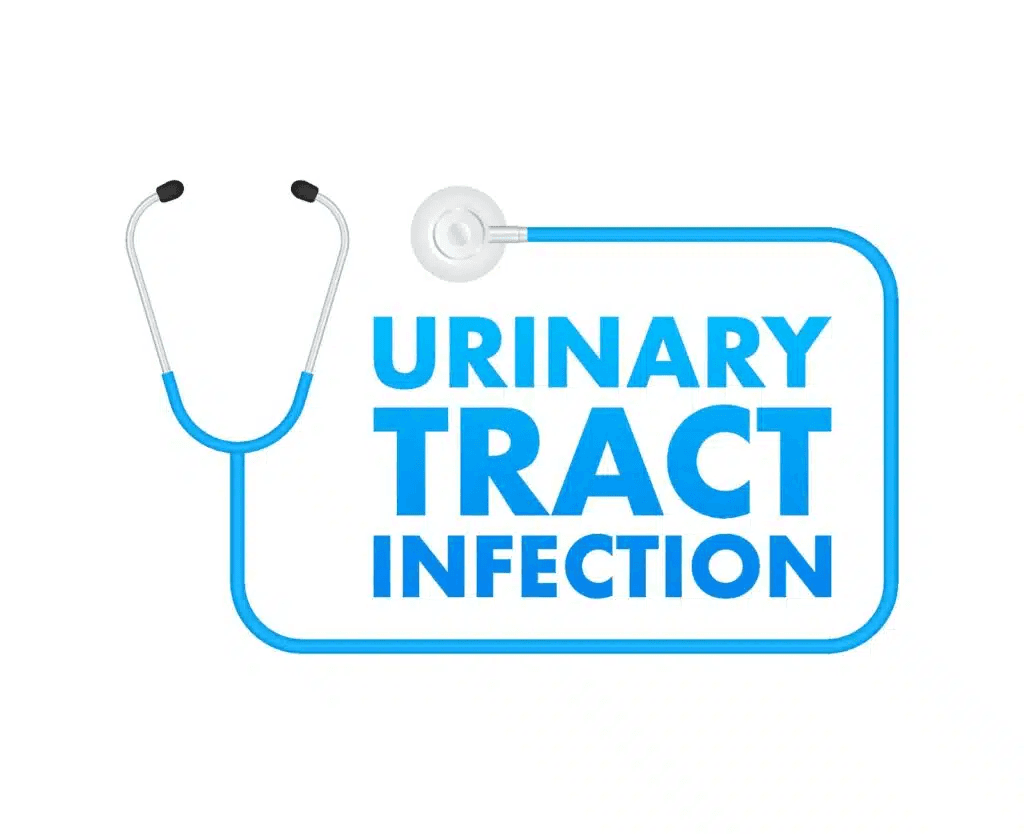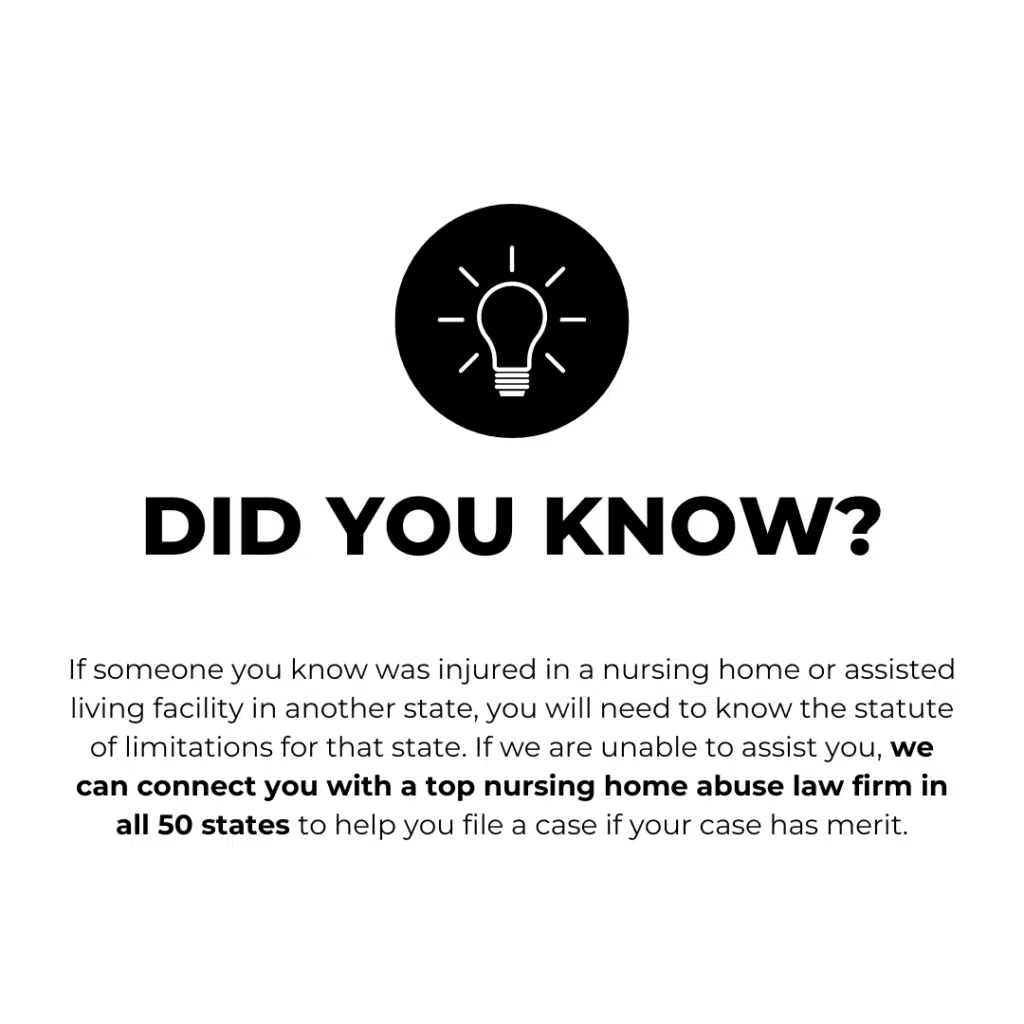
Nursing home abuse and neglect put vulnerable residents at serious risk, leading to malnutrition, dehydration, infections, and preventable injuries. When facilities fail to provide adequate care, residents suffer, and families are left feeling helpless. Lack of supervision, improper medical treatment, and unsafe conditions can result in devastating harm. Understanding the warning signs, knowing your legal rights, and holding negligent facilities accountable are crucial steps in protecting your loved ones. Learn how to take action and seek justice.
November 6, 2024
3 min
We’ve all heard of someone who suffered a urinary tract infection, or UTI. Many of us have dealt with a UTI ourselves. Often these infections of the urinary tract are uncomfortable and inconvenient, but usually clear up with just a course of antibiotics. For the elderly and nursing home residents, a UTI can be a dangerous infection that causes serious harm or even death. Why are urinary tract infections a serious problem for nursing home residents?
Elderly patients often have different signs and symptoms when they get a UTI than younger patients, and these are symptoms you may not be thinking of. People taking care of elderly patients need to pay close attention to these symptoms, and have education and training to know what to look for. Unfortunately in the elder care industry, staff are often overloaded with more residents than they can care for. Sometimes nursing homes hire staff that aren’t properly educated about the signs and symptoms of UTI, and don’t provide training to staff about what to look for.
The tragic result is that elderly residents become victims of nursing home neglect – failing to pay attention to their medical and nursing needs – which delays the diagnosis of UTIs until after the resident suffers serious injury or even death.
A urinary tract infection, commonly called a “UTI,” is when bacteria enters a person’s urethra, bladder, or kidneys and causes an infection.
Often the infection is from bacteria commonly found in feces, such as E. Coli, or from bacteria that grows on the skin near the genitals, such as Staphylococcus saprophyticus. In the healthcare setting, other types of antibiotic resistant bacteria, such as Staphylococcus aureus or “MRSA” can cause UTI when it enters the urinary tract.
Once the bacteria infects the urinary tract, it grows quickly, and can cause discomfort such as burning with urination or frequent urges to urinate. It can progress into a more serious infection that causes damage to the kidneys or bladder, and even pass into the bloodstream to cause a whole-body infection or sepsis.

Typically UTIs are treated with a short course of antibiotic pills. Doctors order tests to find out what bacteria is causing the infection, and pick out an antibiotic that attacks the bacteria. While they are waiting for the test results, doctors often order antibiotics that target most common types of bacteria that cause UTI.
If the UTI progresses so far it starts causing damage to the urinary tract, or causes sepsis, then the patient will need to go to the hospital for more intensive treatment. Sometimes that can mean giving more powerful antibiotics directly into the patient’s bloodstream through an IV, and other treatments to reverse the damage caused by the infection. Usually this can be avoided with timely treatment of the UTI using antibiotic pills.
Women can be more prone to UTI because of the shortened urethra opening, which makes it easier for bacteria to pass into the bladder. In the nursing home, all residents can be at risk of UTI, especially when the resident is incontinent and can’t control their bladder function. Dehydration or not getting enough fluids and water increases the risk of developing UTI. Residents who rely on the nursing home staff to provide bathing and hygiene are also at risk.
Nursing home residents with foley catheters, or tubes inserted into the urethra to drain urine straight from the bladder into a bag, have a high risk for developing UTI. The catheter creates a direct path for bacteria to enter the urinary tract.
Many of us are familiar with the common signs of a UTI. Burning while urinating, frequent urges to urinate, cloudy or foul-smelling urine, and even blood in the urine are common signs of a UTI. Other symptoms include low back pain or pain and pressure in the pelvis, and possibly fever.
Elderly people can have a different set of symptoms when they get a UTI than a younger person. Those symptoms include confusion or changes in mental status, becoming irritable or agitated, increased fatigue and weakness, loss of appetite, incontinence or inability to control their bladder, and even frequent falls or decreased coordination.
These symptoms are important for nursing home staff to know and recognize quickly. Often the nursing home residents might not have the typical symptoms of UTI, or might not be able to tell the nursing home staff if they do. Nursing homes and their staff must pay careful attention to their residents for these signs and symptoms.
Many nursing homes are for-profit corporations that are owned by private equity groups and hedge funds. Their job isn’t to provide good care, it’s to increase the profits for their investors.
The biggest source of income for a nursing home is the monthly fees from residents living in the nursing home. The biggest expense is the nursing staff and other employees that are needed to take care of the residents. To increase profit, nursing homes try to increase the number of residents while decreasing the number of nurses and staff to care for them. That results in nursing homes neglecting the needs of the residents, because there are more residents than the limited staff can handle.
When the staff have too many residents to care for, they don’t have the time to pay close attention to all the residents under their care. The staff can miss the symptoms of UTI like confusion, irritability, and loss of appetite. This creates a dangerous situation for nursing home residents with UTIs, because they don’t get the treatment they need in time to keep the UTI from getting worse.
Nurses and nursing staff are the eyes and ears for the doctors caring for nursing home residents. If the nursing home doesn’t recognize the symptoms of UTI and report them to the doctor, the doctor likely won’t know the resident has a UTI. If the doctor doesn’t know the patient has a UTI, that can delay getting antibiotics and testing to see what bacteria is causing the infection.
If the treatment for UTI is delayed, the bacteria can grow until it starts damaging the urinary tract, or even enter the patient’s bloodstream. Once that happens, the patient needs more serious treatment at a hospital or even in the intensive care unit, and may not survive the infection. That is why it is important to detect the UTI early when it is still treatable with antibiotic pills.
If you notice a loved one in the nursing home starting to behave differently without explanation, such as getting confused, becoming irritable or easily agitated, or having a sudden loss of appetite, you should ask to speak with their doctor or nurse practitioner right away.
You should discuss your concerns with the nurse taking care of your loved one, and be clear that you think these symptoms are out of the ordinary and you feel they may be caused by a UTI. You should tell the nurse firmly but politely that you want to discuss your concerns with the doctor or nurse practitioner caring for your loved one.
If the nurse does not agree to bring your concerns to the doctor, you should ask to speak with the nursing supervisor and director of nursing about your concerns. Nursing home residents and their loved ones have the right to have their concerns addressed by the doctor.
If the nurse or the nursing home staff says the doctor has been notified, ask for confirmation that the doctor was notified. Follow-up regularly throughout the day until you hear from the doctor directly. If urine testing is performed, follow-up regularly with the nursing staff about the results – the results of a urine test for UTI are usually reported within 24 to 48 hours, so you should know the results quickly.
If you do not think the nursing staff contacted the doctor, you have the right to contact the doctor directly with your concerns – ask the staff to provide you with the doctor’s contact information.
If you feel that your loved one is getting sick and needs to go to the hospital, you can request that the nursing home call 911 to get them to the hospital. If the nursing home refuses, you have the right to dial 911 yourself if you think your loved one is in danger. Express your concerns clearly to the 911 dispatcher, and that you think your loved one needs to go to the emergency department.
It’s important to also keep a record of your concerns and the attempts to get the nursing home’s attention. Document dates, times, the concerning symptoms, who you spoke with and what they told you. This can be important to inform your loved one’s care providers if the UTI gets worse, as well as make a clear record of your attempts to get help.
If you feel that your loved one was injured or died from a UTI that the nursing home failed to detect, you should contact our firm to talk about what happened right away. You may have the right to file a nursing home neglect lawsuit or wrongful death lawsuit against the nursing home.
There are time limits to filing lawsuits for nursing home neglect and wrongful death lawsuits, called “statutes of limitation,” which cutoff the right to file a lawsuit if too much time passes. This time limit can be very short depending on the state you’re in and the facts of the case. It is important to contact an attorney right away.
Disclaimer: This information is provided for informational purposes only. Nothing in this article should be construed as providing legal advice or the creation of an attorney client relationship. Laws are updated frequently and change from state to state. If you desire legal advice, you can contact Michael Hill Trial Law at www.protectseniors.com, send an email to info@protectseniors.com, call (800) 659-2712 to begin an investigation, or contact another attorney.